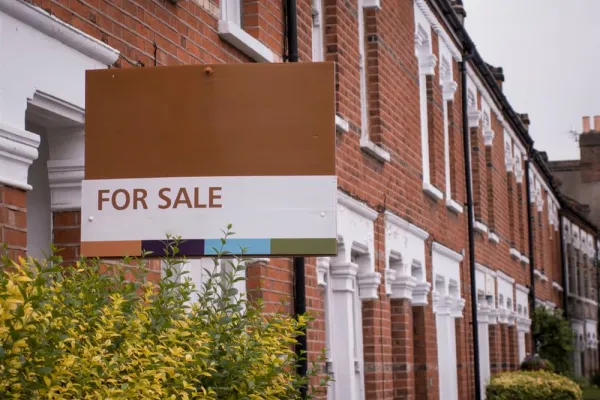Saving for a mortgage deposit is difficult.
One of the ways people try to get around this is with a 100% mortgage.
Here’s a guide with everything you need to know.
What is a 100% mortgage UK?
If you take out a 100% mortgage, it means that you are borrowing for the entire value of the house.
In other words, if the property is valued at £300,000, you will borrow all that money to pay for it.
This is only possible if your salary is high enough to do so, as the bank uses this to decide how much it will lend you.
Remember that even if you take out a 100% mortgage, you will still need a few thousand pounds set aside.
This can pay for the legal fees and moving costs of buying a property.
A 100% mortgage is a useful option for someone who wants to get onto the property ladder but cannot make a sufficient deposit.
There are drawbacks attached that make the deal slightly less attractive.
Guarantors for 100% mortgages
Some 100% mortgages need a ‘guarantor’. This is someone who will pick up any payments you fail to meet.
Sometimes, this can come in the form of collateral. For example, if your guarantor owns a property, this may supplement the deal.
Becoming a guarantor is risky, and you should not rush or force anyone into doing it.
Likewise, the bank is unlikely to give you favourable interest rates because they also take on a lot of risk.
Can a first-time buyer get a 100% mortgage?
Yes, it is possible to get a 100% mortgage as a first-time buyer. But it will probably be a family deposit or a guarantor mortgage.
In this situation, you may still find that the lender rejects you if you are considered a ‘risk’.
How common is a 100% Mortgage?
In the current market, 100% mortgages are rare. Skipton became one of the first lenders to offer it in 2023.
And since then, only a couple more major banks have agreed to provide this product.
In some circumstances, Barclays, Lloyds Bank and Halifax Building Society offer a 100% mortgage.
But, in almost all these cases, a guarantor is needed. And dozens of banks still do not provide 100% mortgages at all.
You should speak to a specific bank if you want to know more about whether they offer this product.
Advantages of a 100% Mortgage
You can spend your money elsewhere when saving up
Saving up is difficult. You may find it hard to get enough money to place a sizeable deposit.
In this case, a 100% mortgage means you don’t have to try.
You can spend your money elsewhere, such as a holiday or new car.
Get onto the housing ladder quicker
Taking out a 100% mortgage enables you to buy a house without saving up for a deposit.
This may enable you to get onto the property ladder quicker. Or to complete the deal without sacrificing funds you’d saved for another purpose.
For example, education for your children, a family holiday, or a new car.
You aren’t stuck at 100% forever
With a 100% mortgage, you can build up equity in your home.
This means that once your introductory mortgage deal ends, you could remortgage to a better deal.
You won’t be at 100% forever. It’s a launching pad.
Disadvantages of a 100% mortgage
It’s costly
Getting a 100% mortgage is expensive.
Since you are paying interest on the entire property value, it can take a long time before you build up considerable equity in the house.
Can make your relationship difficult
A 100% mortgage can strain your relationship with a loved one. As a guarantor, they’re responsible if you miss payments.
Conversations may be difficult and awkward and the situation can strain relationships.
If your 100% mortgage is paid via a family deposit mortgage, they can’t access their savings for a set period.
Once again, this can impact your relationships. And put them in financial strain.
Risk falling into negative equity
You also risk falling into negative equity when you take out a 100% mortgage.
This can happen if property prices fall, and your house ends up being valued at less than the amount you have borrowed against it.
This has happened in parts of the country where housing prices are particularly volatile.
Should I get a 100% mortgage?
Saving up for a deposit is almost always the best financial idea.
You’ll get better interest rates by having a deposit.
You may also feel uncomfortable asking a loved one to be a guarantor. They will feel stressed. And you may put them in a difficult financial position.
You might want to consider other methods to save up a deposit. It could be a downsize. Or move back in with your parents.
You could also try to increase your income via a second job or pay rise.
The UK government sometimes offer financial support schemes. Check if any could help you, too.
Alternatives to a 100% mortgage
Gifted deposit
This prevents your loved one from becoming a guarantor. Instead, they gift you the money up-front.
You then use this as a deposit. Tax isn’t payable on this gift. Their stress is reduced, and you’ll get a better mortgage deal.
Shared ownership
Shared ownership is a route worth considering, too. This is when you buy a share of the property.
You then pay rent on the rest. This usually goes to a housing association.
Buy alongside someone else
Teaming up with someone else is a valuable strategy. Your combined deposit will be more significant. And you can borrow more, too.
Just make sure they’re someone you can stand to live with. And get a contract in place for the division of equity.
















